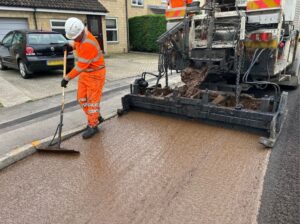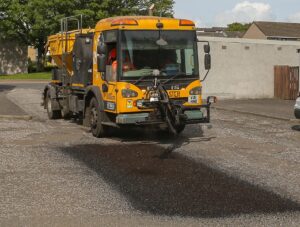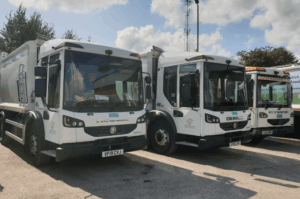Highways engineers are being urged to increase the focus on surface water treatment at the design stage following the recent World Environment Day 2022.
This year’s World Environment Day called for collective, transformative action to celebrate, protect and restore the planet. As the highways industry continues to find new ways to protect the planet, ACO Water Management is beckoning engineers and designers to place greater emphasis on managing water cleanliness when designing projects.
It follows news that the government rejected requests from MPs to clean up Britain’s rivers, in the wake of a report by the Environmental Audit Committee explaining the extent of the pollution crisis in the country’s waterways. Earlier this year, it was revealed that England’s Environment Agency does not have enough money to investigate low-impact pollution events.
A number of pollutants can often be found on the UK’s roads, where motor oil and tyre debris can often find its way into the water network. With water contamination continuing to increase, the onus is likely to fall on the construction industry to help mitigate the impact, as Terry Wilkinson, Specialist Design & Application Engineer at ACO, explains:
“During dry weather, more pollutants, such as rubber from tyres and motor oil, can accumulate on road surfaces. However, when we experience rainfall, this pollution is washed into our drains, adding to the recent problems highlighted by the Environmental Audit Committee.
“The problem with water pollution is complex, however, there are ways in which the highways industry can help protect our waterways from worsening. It’s imperative that effective surface water management is considered at the beginning of every highway scheme, to ensure water that enters the drainage system is cleaned before being released back into the country’s waterways.”
ACO’s Water Management range incorporates solutions from the full SuDS (sustainable drainage system) management train[BG1] , including proprietary products and systems that work in combination with nature. This includes its V-Septor and QuadraCeptor product lines, which function with water management systems to help clean the water before it’s released into soil and watercourses.
The V-Septor removes sediment-bound contaminants and also helps to reduce sediment build-up in attenuation tanks downstream, decreasing how often the tank needs to be cleaned and maintained. Meanwhile, the QuadraCeptor is ideally suited to treating surface water run-off from highly trafficked areas. It is designed to remove heavy particles, silt, nutrients and dissolved materials like heavy metals from brake dust, in a four-stage process. Crucially, both ranges meet with the guidance from Design Manual for Roads and Bridges (DMRB) document, CD 528 Vortex separators for use with road drainage systems, and designers should refer to the CIRIA SuDS Manual (C753) when looking at SuDS schemes.
Terry Wilkinson added: “It’s important that industry collaborates to help mitigate the damaging effects of contaminants in our waterways. Working with water management specialists at the beginning of a project can help ensure the right tools are utilised to benefit the natural surroundings. At ACO, we have a complete water management system to support the SuDS train. From channel drainage (collect) and water treatment (clean) through to water storage (hold) and flow controls (release), our system can be designed into any highways project.”
























